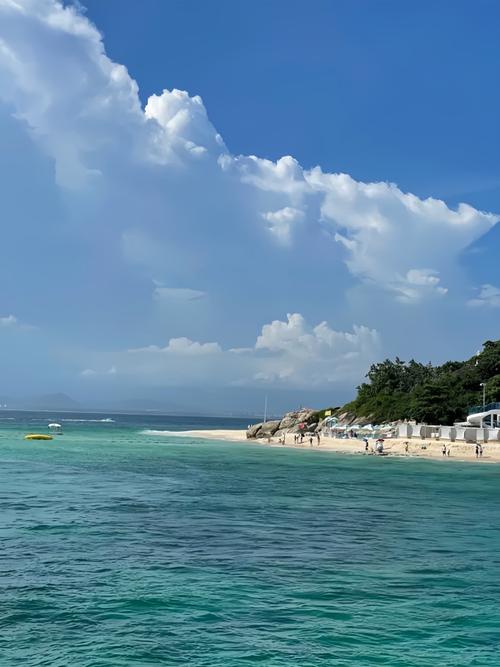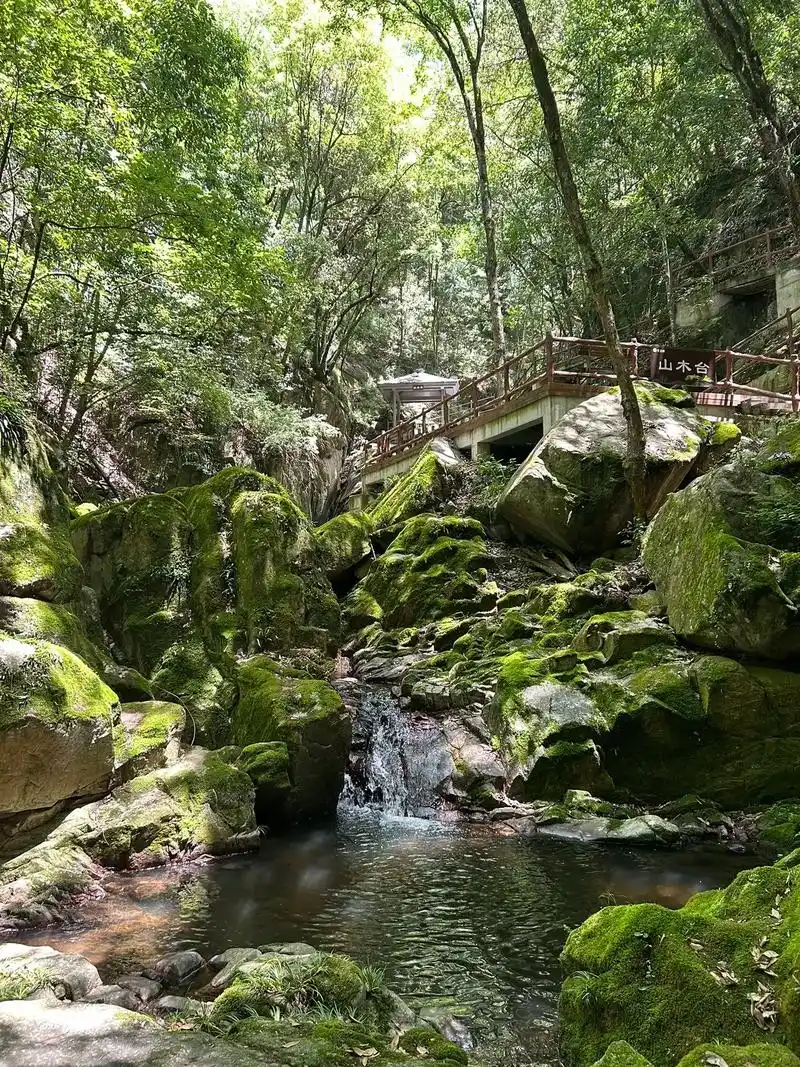China Travel
Cheap Travel in China: Foshan’s Martial Arts Heritage and Ancestral Temples on a Budget
Title: The Frugal Pilgrim: Exploring Foshan's Martial Arts Legacy and Ancestral Temples on a Shoestring
China, a land of profound history and cultural wealth, often evokes images of bustling metropolises like Beijing and Shanghai. Yet, for the budget-conscious traveler seeking an authentic encounter with the nation's soul, the true gems lie in its lesser-known cities. Foshan, a prefecture-level city in the heart of the Pearl River Delta in Guangdong province, is one such treasure. It is a place where ancient traditions are not merely preserved behind glass but are lived and breathed daily. For those willing to step off the beaten path, Foshan offers an unparalleled journey into the heart of Chinese martial arts heritage and spiritual ancestry, all without straining your wallet.
Foshan: The Cradle of Legends
Despite its proximity to the colossal Guangzhou, Foshan maintains a distinct, slower-paced identity. Its name, meaning "Buddha Mountain," hints at its deep spiritual roots. Historically, it was one of China's four ancient towns and a crucial hub for ceramics, textiles, and commerce. But its most enduring export to the world is its martial arts tradition. Foshan is the legendary birthplace of iconic figures like Wong Fei-hung and Ip Man, masters who shaped the practice and philosophy of Kung Fu. This city doesn't just have museums; it is a living museum where the past is a tangible presence.
Mapping Your Budget Journey
Reaching and navigating Foshan is the first lesson in frugal travel. Most international travelers fly into Guangzhou Baiyun International Airport (CAN). From there, a world of affordable options opens up. The most efficient is the Guangzhou Metro Line 1, which connects directly to Foshan’s extensive metro system. A two-hour metro ride costs a mere 10-15 RMB (approximately $1.50 USD). Alternatively, intercity buses are even cheaper, though slightly slower.
Once in Foshan, your best friends are the city’s efficient and cheap public transport. The metro system is new, clean, and easy to use, with most rides costing between 2-7 RMB. For shorter distances, shared bicycles like Meituan or Hello Bike are ubiquitous; a 30-minute ride often costs less than 1.5 RMB. Avoid taxis; ride-hailing apps like Didi offer better rates for occasional necessary trips.
Accommodation is where significant savings can be made. Skip international hotel chains. Instead, opt for a local budget hotel (经济酒店) or a guesthouse. Areas around Zumiao or the Liangyuan Garden offer numerous clean, safe options for 100-150 RMB ($15-22 USD) per night. For the truly adventurous, several hostels provide dorm beds for around 60 RMB ($9 USD) per night, offering a chance to meet fellow travelers.
Walking with the Masters: Martial Arts on a Budget
Foshan’s martial arts spirit permeates the very air, and engaging with it requires more curiosity than cash.
The undeniable centerpiece is the Foshan Zumiao (祖庙), or Ancestral Temple. This is not just a temple; it is a sprawling complex dedicated to the Northern God, a Taoist deity, and the city's guardian. The entrance fee is a paltry 20 RMB (around $3 USD). Within its ornate walls, history comes alive. The temple itself is a masterpiece of Lingnan architecture, with intricate wood carvings, ceramic figurines, and majestic roofs. But for the martial arts enthusiast, the true magic happens in the Wong Fei-hung Memorial Hall, located within the complex. Here, you can pay respects to the legendary master, view exhibits of his life, and, most importantly, watch breathtaking Lion Dance and Kung Fu performances included in your admission ticket. These are not tourist gimmicks but displays of genuine skill by disciples of the Wong Fei-hung school. Watching the dancers leap between high poles with agile precision is a memory that costs nothing extra.

A short walk or a cheap metro ride away is the Ip Man Museum. Housed in a traditional Cantonese mansion in the Luoguo Village, this museum is a humble yet powerful tribute to the Wing Chun grandmaster who taught Bruce Lee. The admission fee is typically under 10 RMB. The exhibits, featuring photographs, personal artifacts, and wooden dummies, are modest but deeply evocative. It’s a place for quiet reflection on the man and the philosophy behind the art, far from commercial glamour.
The real budget-friendly secret, however, lies beyond the museums. Peek into the open doors of local martial arts schools (武馆 wǔguǎn) in the older districts. Often, you can see young students practicing their forms in the early morning or evening. With a respectful demeanor, observing from the doorway is usually welcomed. Furthermore, many public parks, especially Liangyuan Garden (entrance ~15 RMB), become impromptu training grounds at dawn. Here, you’ll see locals of all ages practicing Tai Chi, Wing Chun, or other styles. Joining them is free; simply find a spot and follow along. This is cultural immersion in its purest form.
Whispers of the Past: Ancestral Temples and Ancient Alleys
Foshan’s spiritual landscape is as rich as its martial one. The Ancestral Temple (Zumiao) serves both purposes, but the city is dotted with other serene spots.
The Liangyuan Garden is a classical Chinese garden offering a peaceful respite. For a small fee, you can wander through its pavilions, rockeries, and ponds—a perfect example of affordable tranquility. Another significant site is the Nanfeng Ancient Kiln, a centuries-old ceramics kiln that is still operational. The area has been transformed into a creative park, but the historical core remains accessible for about 25 RMB, offering a glimpse into the industry that built Foshan.
However, the most rewarding experiences are free. Dedicate hours to getting lost in the Ancient Nanfeng District and the Lingnan Tiandi area. While the latter has been renovated for commercial purposes, its architecture faithfully replicates the traditional Qilou (arcade buildings) style. Wandering these cobblestone alleys, past ancestral halls (祠堂 cítáng) that are still active centers of clan worship, is like stepping back in time. You might stumble upon a family conducting offerings or elders playing chess in the shade. The sense of continuity is palpable.
A Feast for the Senses and the Wallet
No budget trip to Foshan is complete without indulging in its culinary delights. Foshan is in the heart of Cantonese food culture, famed for its yum cha (dim sum) and fresh ingredients. Fancy restaurants are unnecessary.
Start your day like a local at a bustling dim sum teahouse. Point to steaming baskets of har gow (shrimp dumplings), siu mai (pork dumplings), and char siu bao (barbecue pork buns). A satisfying meal with tea rarely exceeds 30-40 RMB per person. For a quick and delicious lunch, seek out a dapaidang (大排档) – a open-air food stall. A plate of shaxing barbequed pork rice or wonton noodles will cost about 15-20 RMB.
Foshan’s specialities are must-tries. Foshan zai gei (扎蹄), a deboned pig's trotter stuffed with spiced meat and brine, is a savory delight. Daliang pofan (大良破翻奶), a double-skin milk pudding from the neighboring Shunde district, is a creamy, sweet dessert. Finding these at local markets or small eateries ensures an authentic experience for a few dollars.
The Frugal Traveler's Philosophy
Traveling cheaply in Foshan is not about deprivation; it’s about a different kind of richness. It’s the wealth of watching a Lion Dance performance under the eaves of a 600-year-old temple. It’s the priceless moment of sharing a table with a local family at a loud teahouse, communicating through smiles and gestures over shared plates of dim sum. It’s the profound quiet of standing in an ancient alley, feeling the echoes of masters and ancestors.
Foshan proves that the most authentic cultural experiences are often the most accessible. It invites you to listen, observe, and participate in a living tradition. By spending less on logistics and luxuries, you invest more in connection and understanding. You leave not with souvenirs, but with the enduring spirit of Kung Fu—a discipline of mind, body, and, for the traveler, budget.
-
上一篇

Affordable China Destinations: Jiangmen’s Overseas Chinese History and Rural Villages on a Budget
**HiddenGemsofthePearlRiver:ExploringJiangmen’sHeritageandVillageson
-
下一篇

Budget China: Zhaoqing’s Seven Star Crags and Xijiang River Views for Under $35 a Day
**DiscoveringZhaoqing:NaturalSplendorsataShoestringBudget**Nestledint
相关文章
- Affordable China Getaways: Yingtan’s Longhu Mountain and Taoist Heritage on a Budget
- Budget China: Nanchang’s Tengwang Pavilion and Gan River Night Views for Under $40 a Day
- Cheap Travel in China: Jiujiang’s Poyang Lake and Lushan Mountain Gateway on a Budget
- Affordable China Destinations: Yichun’s(Mingyue Mountain) and Hot Springs for Less
- Budget-Friendly China: Shangrao’s Sanqing Mountain and Ancient Villages on a Shoestring
- Cheap China Travel: Ganzhou’s Song Dynasty City Walls and Hakka Culture for Budget Tourists
- Affordable China Getaways: Meizhou’s Hakka Round Houses and Tea Gardens on a Budget
- Budget China: Shantou’s Coastal Food Stalls and Ancient Temples Without Overspending
- Cheap Travel in China: Chaozhou’s Traditional Crafts and Kung Fu Tea for Less
- Affordable China Destinations: Jieyang’s Coastal Scenery and Seafood Markets on a Budget
发表评论
评论列表
- 这篇文章还没有收到评论,赶紧来抢沙发吧~

